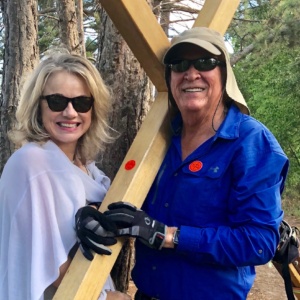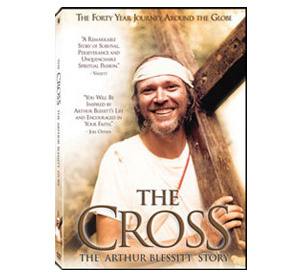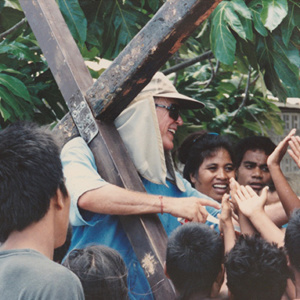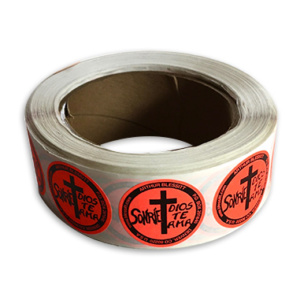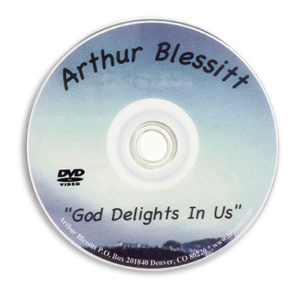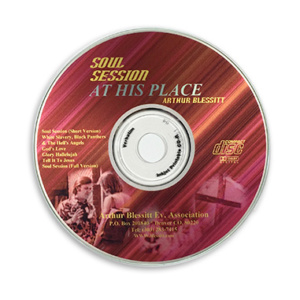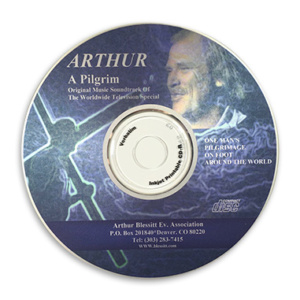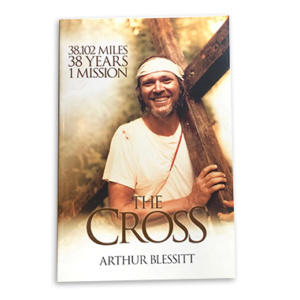CIRCUIT RIDER, TWENTIETH-CENTURY STYLE
Saddlebag preachers, many of whom were as familiar with a six-shooter as with salvation, won all the enormous territory west of the Mississippi for God in the last half of the nineteenth century.
The vast majority of these circuit riders were lions for the Lord; a few were mutations. The bad ones reflected the violent era when plowshares were often beaten into pistols.
The Reverend Mr. McGilvary rode into Gun Sling, Arizona, on January 2, 1880, and headed straight for the saloon. Passing the tables jammed with miners and cowhands playing monte, faro, rondeau, chuck-a-luck, and keno, he laid his shooting iron on the bar and shouted, “Boys, let’s pray.” At the conclusion of the prayer though it is unrecorded, it is unlikely that anyone was saved on that occasion the Reverend Mr. McGilvary pulled up a chair and joined a game of draw poker.
Joseph Thompson Hare considered himself a preacher. But Joseph Thompson Hare was considered a bandit by lawmen of three mid-western states, since his sole means of livelihood was robbing stagecoaches. “Preacher” Hare read to members of his gang from the writings of John Wesley. He even converted several! He held prayer meetings before each holdup and between holdups he studied the Bible by the hour. His career as a connoisseur of the Scriptures and soul saver came to an abrupt end when he was caught and hanged.
Kansas gunslinger Clay Allison was noted around Dodge City for herding passers-by into a saloon whenever the spirit moved him to preach a sermon. They all listened. They had to, Clay had a Bible in one hand, a Colt .45 in the other.
The circuit riders experienced lighter moments, too, moments that illustrate the painful penetration of the Gospel in the early west.
Cheyenne, Wyoming, was part of the Reverend Cornelius Dowling’s circuit. His small faith in the biblical knowledge of his flock was justified when he asked a blacksmith, “Who killed Abel?” The man scratched his beard, thought a moment, and replied, “I didn’t know he was dead. We just moved here last week.”
The territory of the circuit riders extended over thousands of miles of harsh frontier. The riders preached against liquor and the Devil at camp meetings and revivals. They spread the Word, won millions to the faith, and built the churches.
They were tough, hard-bitten, and dedicated men. They had to be to survive.
As I was to learn soon enough, the days of the circuit rider in the West were far from over.
The only preacher I knew in Nevada was LaVern Inzer, founder and pastor of the First Baptist Church of Winnemucca, a small community of about 3,500. LaVern was a contemporary circuit rider who had established a string of twenty churches through the northeastern portion of the state. He had a grueling schedule, visiting each of his churches at least once a month. And he always responded immediately to an emergency call from anyone anywhere on his circuit.
The life of this wiry, tireless servant of the Lord is filled with fascinating incidents. For instance, while serving on a Pacific island during World War II, he arranged a Christmas truce between American and Japanese fighting men. The enemies spent the eve of the celebration of the Lord’s birth in fellowship and singing carols!
When LaVern arrived in Winnemucca, he found the town harbored three thriving houses of street women. He also found that rarest of treasures in Nevada, an honest public official. With the aid of State Attorney General Roger D. Foley and several of his undercover agents, LaVern gathered enough evidence against the houses to force a trial. Street women were officially outlawed by the state, but it was a matter of local option as to whether the law should be enforced. On a complaint from a private citizen or organization the houses could be closed as public nuisances. LaVern had made such a complaint, but when the case came to trial, he lost for an understandable reason: The all-female jury was composed of three madams and nine of her ladies!
Unable to support his family on a pastor’s salary, LaVern took a weekday job as a bookkeeper in a lumberyard. A local vice lord got him fired. After this latest intimidation, Foley wrote to LaVern from Carson City and released the letter to the press. It said:
“It is a sad state of affairs indeed when a zealous minister of the Gospel
jeopardizes the welfare of his family when he seeks only to have the law
enforced. Or, stated otherwise, in Winnemucca a minister’s family must
suffer privation so that houses of prostitution can operate and public officials
can flaunt the law. ”
Shortly after this episode, LaVern was having supper with his wife and five children when a bomb exploded in his basement. Flames licked quickly through the house and the seven Inzers barely escaped in time.
Despite these hardships, LaVern was still as tough and uncompromising as a hungry tiger. He greeted me enthusiastically and invited me to preach at his church. His congregation held a food shower for us. The canned goods that I gratefully received kept us eating for weeks.
?”I can’t cover the whole state,” LaVern told me when we discussed my future in Nevada. “There’s plenty of work to be done in and around Elko.”
“Then that’s where we’ll go,” I said.
Thus began my own baptism as a circuit rider.
In the eighteen months we spent in Nevada I managed to establish a network of five outposts for Christ within a fifty-mile radius.
1. Elko. Population, 6,300. After Las Vegas and Reno, Nevada’s largest city. Cold, bar, and dead in spirit. Less than a dozen churches; fifty-four liquor stores; five houses of prostitution staffed by more than one hundred girls; three huge gambling casinos grossing between $3 million and $5 million a year.
With two blank checks given to us by LaVern we paid the first month’s rent on a tiny furnished basement apartment and hired the Rebecca Lodge for five dollars an hour.
I declared the Calvary Baptist Church of Elko as a new house of God.
I bought a half hour of Sunday morning time on KELK, the local radio station, on faith (the bill wasn’t due until the end of the month), and announced our first service. I also placed an ad in the paper.
The church grew, the membership seesawing between 50 and 120. Elko, like virtually all of Nevada, had a large floating population: in-and-outers, retirees who came for short stays in the dry sun, construction crews temporarily in residence for a one-shot building project, a sea of compulsive gamblers who went home slack-jawed when their finances were inevitably depleted, and a legion of hookers, barmaids, and cocktail waitresses, who eventually became disenchanted by life in the sin-splashed desert. We’d win people to the Lord, they would attend church for a while, and then move on, their places taken by fresh arrivals, each of whom we tried to reach as soon as possible.
Perseverance bore fruit as our congregation rose phoenix like from the ashes of indifference. Among those who became loyal parishioners were three I brought to Christ, a trio who had been vegetating at the bottom rung of the sociological ladder: a convicted killer, once on the FBI’s Ten Most Wanted list, who became my assistant pastor, a former street lady who taught one of our Sunday school grades, and an ex-alcoholic who became Sunday school superintendent in charge of all our classes.
Our church expanded to the point where land
was purchased for a building, which was constructed after my departure.


